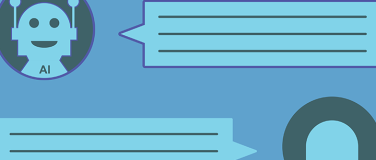As governments collect and share my data more freely across departments, they support the cross-departmental needs of my citizen requirements, organizing themselves to serve me as one holistic government.
Whether you’re moving to a new state or country, getting married, or having kids, undergoing major life changes is exciting. What’s less exciting is the inevitable bureaucratic paperwork that comes with these changes. Despite rapid advances in today’s technology, dealing with government systems often still requires citizens to complete manual, repetitive, and face-to-face steps.
Government officials are aware of these ineffective systems. New South Wales (NSW) Minister Victor Dominello has voiced his frustration with aged government systems, calling out how just 40 years ago, time of birth was not even recorded on birth certificates. Even today, people must still queue in service centers to claim child benefits for a newborn. As NSW Treasurer Dominic Perrottet has publicly asked, “Why do people need to take days off work to get a form?” These inconvenient procedures were the basis for NSW’s “digital first” strategy for improving how customers experience government services.
As a citizen of NSW, I’m excited that my government is beginning to digitize the channels I engage on. I also value my information privacy and citizen rights. These potentially conflicting goals become the challenge every federal, state, and local council is facing. We live in an age where consumers are accustomed to ride-sharing with algorithm-assigned drivers, renting homes from unknown owners, and enabling voice-activated assistants in their homes. But when it comes to government entities, citizens are wary of exposing or sharing their personal data.
Improving the citizen journey
I believe governments are obligated to respect and protect the sensitive and personal data that I send them. I expect my data to be used exclusively for the purpose I intended when I shared it.
So what does this look like in practice? As governments collect and share my data more freely across departments, they work together to support the cross-departmental needs of my citizen requirements, organizing themselves to serve me as one holistic government. It can then serve me better by knowing me more deeply through my “citizen journey” across government, starting from childhood through higher education, to being a married professional and parent with children who now attend school, and so on. This can all be mapped by my data points on file, including registrations, licenses, rates, fines, properties, etc.
Providing digital channels of interaction, ranging from interests in social events to visits to public venues, could further bolster my “citizen journey” through matching (suggestions) that align with my social demographic profile and known history. For example, if I tell one department my income for an assessment purpose, I expect each department to have access to this data for the same purpose. Since governments are inherently transitional (they can change each election), today’s priorities become tomorrow’s legacy, but responsibilities are everlasting.
Arguably, governments are being held back for two principal reasons: firstly, the inertia caused by legacy IT systems, and, secondly, a lack of confidence in their own ability to provide a secure service, be it a concern for data breaches or lack of service (remember the Australian Census problems). Between these two issues are a plethora of others across governance, trust, identity, and anonymity. Yet, there are powerful business drivers requiring them to succeed, including meeting the expectation of “there’s an app for that,” reducing the cost of service, and better understanding and serving citizens through services such as:
Digital voting
Who wants to wait weeks, days, or even hours for an election result? Digital elections are the immediate future, so how do we provide them reliably, securely, transparently and sustainably? API access allows governments to serve the greater public with transparency and real-time insight into election results.
Micropolitical
One person’s interpretation of a data set is guaranteed to differ from another’s. But by opening data to citizens and third-parties the greater society can analyze the data from a multitude of viewpoints and generate meaningful debate.
There’s an app for that!
As consumers, we expect an omnichannel experience across digital channels. This also applies to our interactions with government services and resources — be it renewing a driving license, registering a child’s birth, paying rates and fines, or managing our public service affairs. From in-person service centers, online, phone, or mobile interactions, we expect an omnichannel experience, and we expect it to deliver the results we need quickly.
360 citizen view
Why should we as citizens have to understand the complexity of clusters, agencies, divisions, and departments to determine how to request a birth certificate copy, submit plans for development, renew licenses, or register a death? We expect a single interaction into government. More importantly, once we have given one government department a piece of information, we should expect that the whole of government knows about my current citizen record.
Regulation in the digital world: how the energy industry created a connected experience
A good example of how these principles can be successfully applied is the energy industry. We all see the value in having a smart meter that reports to our energy supplier our usage pattern in the expectation the provider uses this data to ensure a reliable, efficient supply for our needs, regardless of the time of day, season, and weather-related events.
The same can be true for government and citizens, such that governments can uphold their civic duty on core services with greater knowledge and visibility of their citizens. A similar example to that of the energy provider is the rise of smart bins, such that we expect our rubbish to be removed efficiently because the provider can forecast the collection capacity based on past trends. This is an obvious use case of data sharing, but there are broader possibilities. This comes at a price (privacy) for citizens to share greater data, but, in return, the value from the council rates we pay is increased. By being more connected with government across needs, decisions, policies, community alignment, and desire for a fairer society, a justifiable (data-driven) balance can be reached and built upon.
Read my next blog post to explore how the new security challenges arising in connected governments can be addressed.









